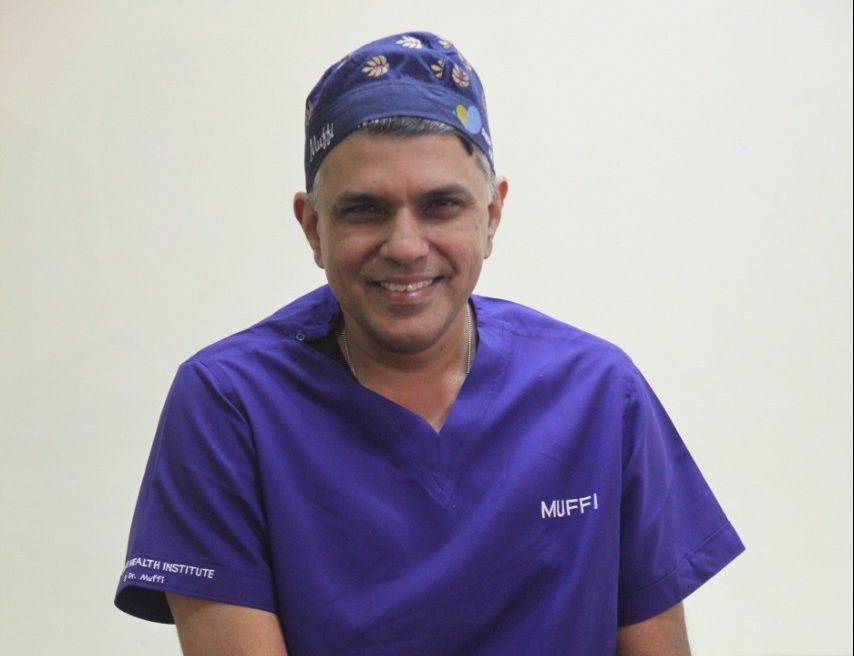He is a renowned bariatric surgeon who is now at the frontline of Covid-19 care in Mumbai. Several large Covid care centres were made functional in India’s financial capital in response to the need for medical facilities specially geared to treat the contagion that has taken the world in its stranglehold. One such is the National Sports Club of India’s (NSCI) Dome in central Mumbai’s Worli. Driving the efforts is Dr Muffazal Lakdawala. We asked him about his experiences at ground zero:
Thrive Global India: What are the striking incidents that come to mind when you think of this pandemic?
Dr Muffazal Lakdawala:The worst thing about this pandemic has been that people have to spend their last moments without their loved ones to say goodbye to, or be comforted by their presence. Families and friends are unable to mourn their loss or participate in their last rites, as they are not allowed to since it may put them at risk of contracting the disease, or in some cases they may themselves be infected and battling for their lives. I have also heard of people dying in ambulances for want of oxygen as they travel between hospitals in search of a bed with a ventilator, when they could have been saved by high-flow O2.
For me personally, one of the most striking moments of this pandemic has also been one of the most inspired ones. It was in late March as the number of Covid cases were rising. There were reports which painted a rather grim picture of how Mumbai hospitals would soon be overrun by Coronavirus patients. As I watched the news, I knew that I couldn’t just sit at home and watch this crisis unfold. I had to do my part in saving my Mumbai, the city I was born in and love. So I volunteered my services with the BMC (Municipal Corporation of Greater Mumbai) to help set up and administer dedicated Covid positive facilities in the city.
It has been around two months since I’ve been on the frontines with my colleagues and our days have been overwhelming to say the least, but we choose to focus on the silver lining.
I’ve seen a two year old child make full recovery and a 94 year old grandmom leave for home to the sound of the loudest applause! It’s been humbling and inspiring to see so many people come forward, volunteer their time and contribute in their own way.
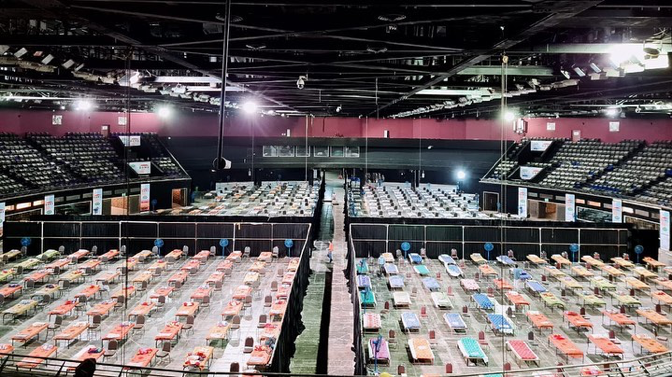
TGI: Since mental well-being is as important as physical fitness. From your experience with critical patients, what can keep people going as they struggle to regain health?
ML: The unfortunate part of this disease is not its death rate, but the level of stigmatisation and isolation it causes. The support of family and friends plays a big role in the recovery of any patient, but it’s amiss here. A simple pat on the hand or a warm hug from a doctor/nurse goes a long way in helping these patients cope with the mental stressors of this disease.
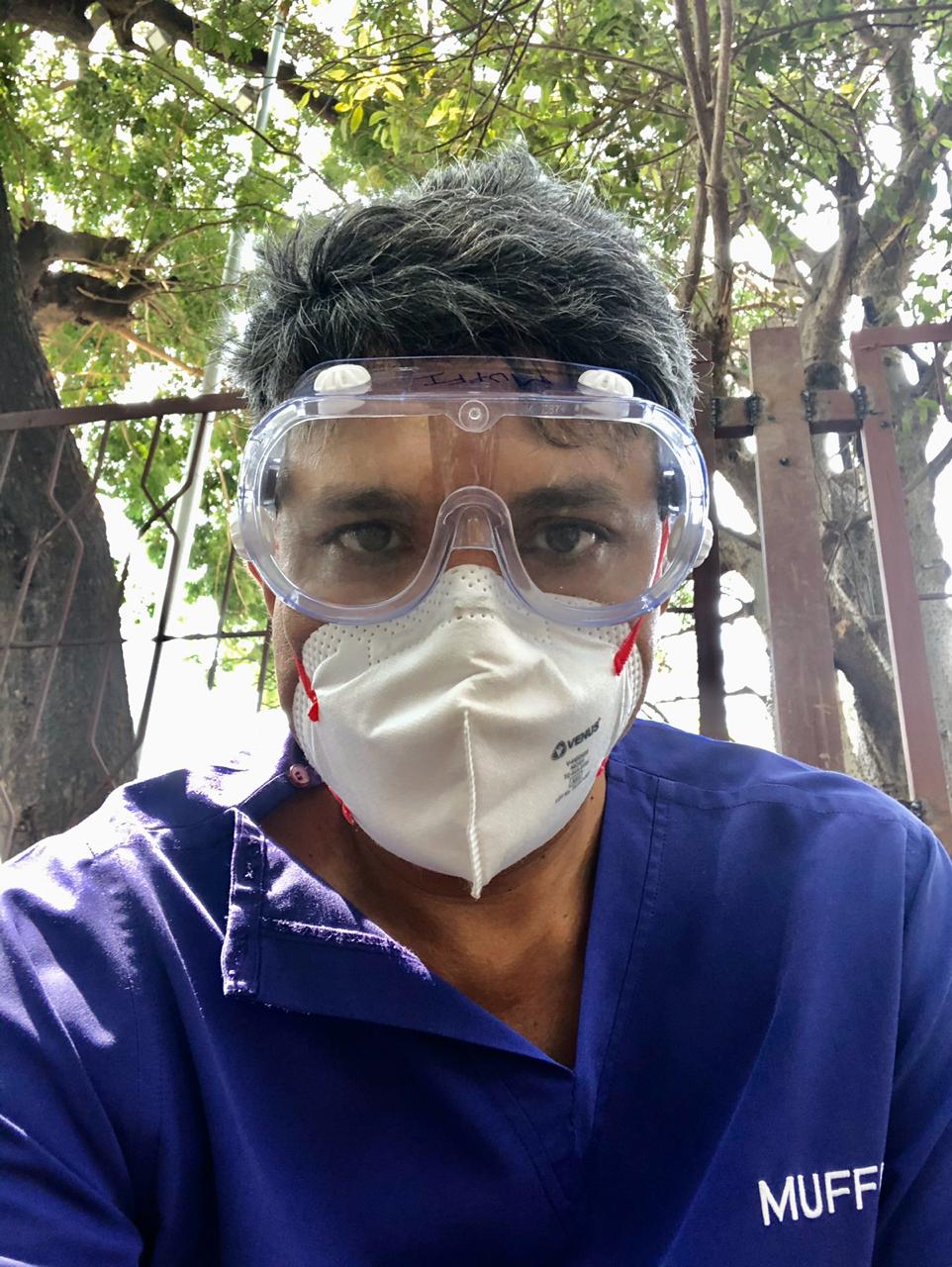
With Covid-19 patients being put in quarantine or isolation, managing fear, anxiety and loneliness becomes an additional challenge as patients tend to feel cut-off from their emotional support systems.
They are often in the midst of people they don’t know for 10-15 days at a minimum. They meet doctors and nurses clad in hazmat suits where they cannot really see who they are speaking with and the human aspect of healthcare is lost. To deal with this and make it better for the patients, we have introduced ‘contactless’ clinics wherein a doctor sits in a cabin without a hazmat suit and comfortably replies to all queries and concerns of the patient (without putting the doctor at risk).
For those who are self-isolating (or at an isolation centre), we encourage them to keep communicating regularly with their family and friends via phone or video calls, chats… Staying connected helps them feel less isolated and anxious. We also conduct regular online sessions with mental health professionals to counsel them.
Most importantly, I advise patients to keep their minds occupied by engaging in some activity or entertainment—watching movies, listening to music, doing Yoga (in consultation with our doctors), reading, and more. This disease, unlike others, needs your mental health to be focussed in equal measure as your physical well-being.
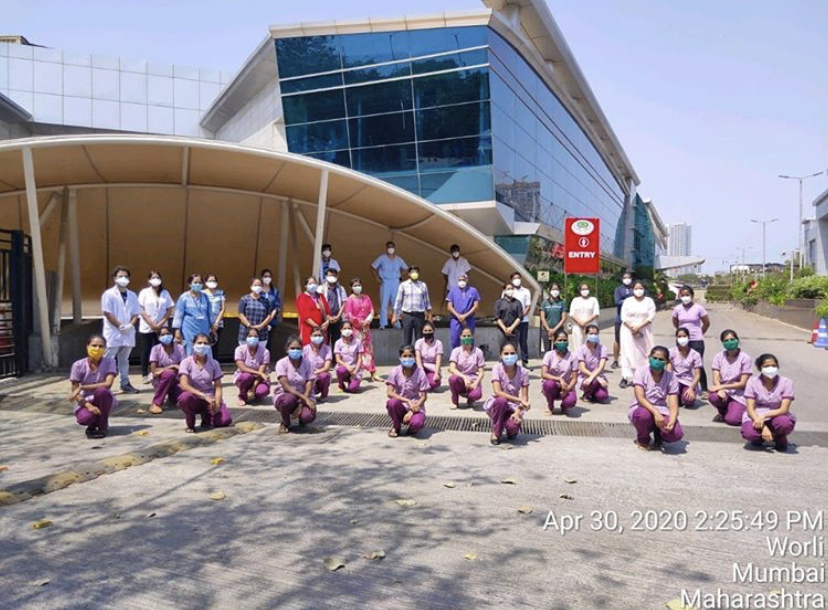
TGI: What is your advice to medical professionals to perform at their optimum best?
ML: As medical professionals we have been trained to deal with all kinds of situations and emergencies. But COVID-19 has been a completely different ballgame—something that none of us were prepared for. Despite the immense physical and emotional stress, I see healthcare workers on the frontlines go above and beyond their call of duty every day. But this is going to be a long war, so I would urge my colleagues and friends from the medical fraternity to take their own health and self-care as seriously as they do patient care.
Try to take a few moments every day, just to take a few deep breaths or simply stretch. Ensure you stay well-hydrated and try to get quality (if not sufficient) sleep. There are bound to be bad and difficult days—talk about it with your colleagues/ friends/ supervisors.
Don’t blame or berate yourself too much—you are the only hope. Many of us have been staying away from our families due to fear of infecting them—whenever possible, take some time to virtually connect with them. This will also help ease the stress.
Remember to protect yourself first, if you want to be a superhero. One act of bravado may or may not protect that patient, but will in turn ensure that you’re out of the game and not able to save more lives.
TGI: Having worked with extremely obese people, you are conscious of feelings of polarisation. A stigma has been attached to the virus and those with increased chances of contracting the disease such as frontline healthcare workers. Your experience and opinion.
ML: I completely agree that obesity has always been stigmatised, from being recognised as a disease to social discrimination, much like Covid-19. The only difference is that in the case of Covid, even the healthcare workers treating it are being discriminated against. I’ve seen most patients being stigmatised and even some doctors and healthcare workers being attacked and discriminated against. It’s unfortunate that such incidents are happening.
That said, I also know that doctors and healthcare workers all over the world are being much appreciated for their incredible efforts in this pandemic. We’ve been at the receiving end of a lot of public love, respect and encouragement and this is also something I’ve personally experienced.
I do not have access to the numbers, but I would like to believe that the former are stray incidents and more exceptions than the rule. Misinformation about the disease and all kinds of myths and rumours surrounding it are some of the key reasons behind this fear and stigma. People need to be educated about this virus, so they can be aware and not afraid of the Coronavirus.
Tiding through this pandemic is our collective responsibility and the only way we will get through it is by staying well-informed, acting as per authorised guidelines and looking out for each other.
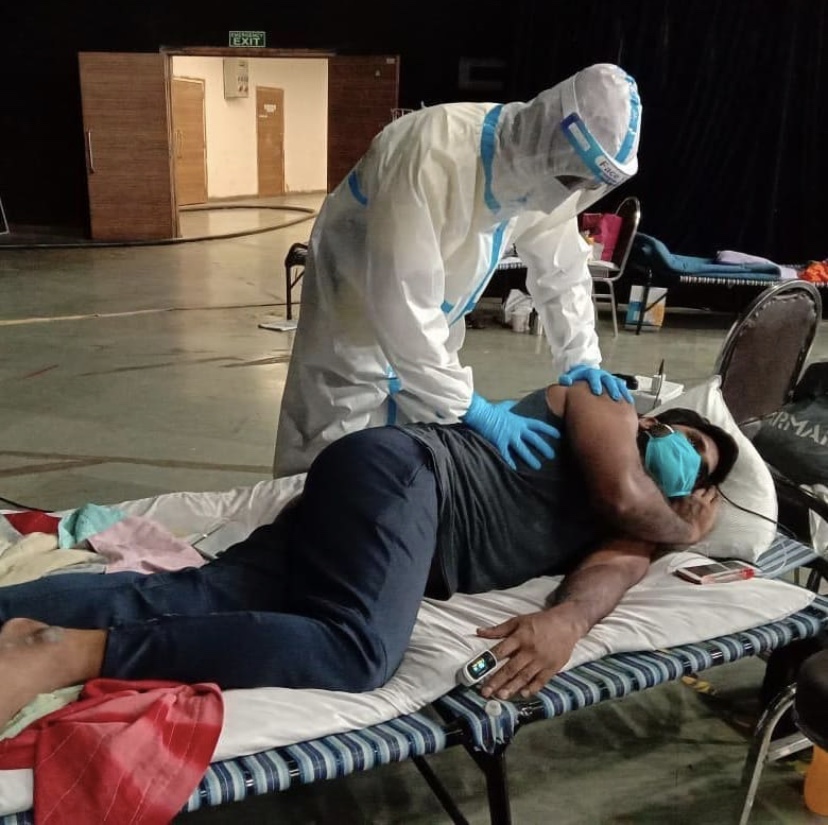
TGI: What according to you are the major challenges (beyond the availability of PPE and other equipment) facing the medical world today in face of the pandemic?
ML: Governments across the world have taken the threat lightly and have been guilty of ignoring the perils of Covid-19 for economic reasons. Infrastructure was not in place, healthcare staff was not trained in advance. Little was done to be ready during lockdowns and whatever was done was too little too late. The government healthcare systems were already tottering because of our population and numbers, and this was the knock-out blow. Plus the sustained, concentrated efforts on the frontlines have put healthcare workers at a high risk for burnout or infection. It’s time for people in power to realise the worth of healthcare in government spending.
TGI: Why should anybody have hope in this situation? Also, what should keep medical professionals going in face of cases of hostility, illness, burnout, sleep deprivation, increased hours of working and much more?
ML: Human beings are hardwired for optimism! We have survived many catastrophes in the past—from wars to economic crises to epidemics and the Covid-19 pandemic is yet another challenge for us to overcome. It may seem that it is unsurmountable, but eventually this too will pass. Some of the best minds in the world are aggressively working towards finding a cure for this disease.
Every day we are hearing stories of acts of kindness, both big and small. There is plenty of hope and lots to be hopeful for.
Coming to medical professionals, this is what we have trained for! I’m a GI surgeon, but I chose to volunteer my services because I viewed this pandemic as an opportunity to save lives and fight with my colleagues from the frontlines. It’s called the noblest profession for a reason—we save lives even in the toughest of circumstances. As doctors we are trained to look at the glass as always half full, rather than half empty.
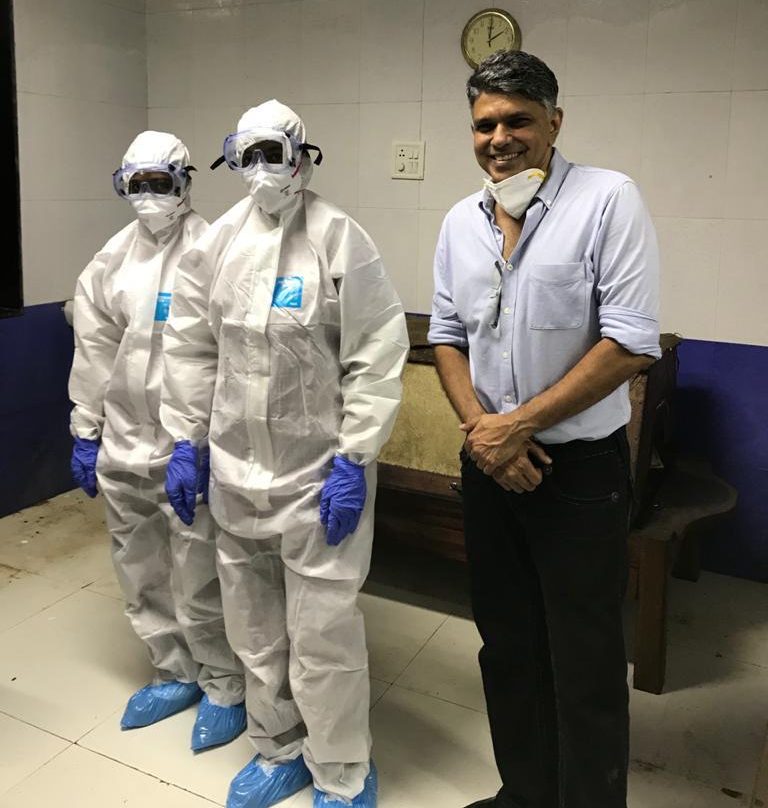
TGI: Any self-care tips for healthcare professionals?
ML: Firstly, diligently continue to practise good hygiene—this will hold you in good stead. Practise hand hygiene and use the N-95 mask without fail. Be extra careful when doffing (removing your hazmat suits). Share your time in the ICU like a tag team. Don’t try and be a hero and do it all by yourself. You owe it to your family and yourself.
As far as possible, try to eat healthy, drink enough water and sleep well.
If you feel overwhelmed or anxious talk to a friend, colleague or seek help if required.
Stay virtually connected with your friends and family.
Get some light exercise and meditate for a few minutes daily if possible—these are great at relieving stress and calming nerves.
Stick to minute details to stay away from the virus and do it every minute, every hour, every day, every week, every month, till this lasts. Don’t let your guard down.
TGI: How should one adapt a new lifestyle post-Covid-19?
ML: The basic principles for good health are timeless. These held true even before the crisis and will help you cope well in the post-Covid world too. It’s the powerful triad of ‘food-exercise-sleep’ that will help you develop a strong immunity, and make you less vulnerable to infections. To boost immunity, WHO prescribes regular consumption of vegetables and fruits rich in Beta Carotene, Ascorbic Acid and other essential vitamins A, B and C enriched foods like mushrooms, tomatoes, carrots, citrus fruits, bell pepper, etc, and green vegetables such as broccoli and spinach. Ensure you’re getting sufficient protein in your diet too.
Workout for at least 30 minutes a day, five times a week and make sure you get good quality sleep.
Also, maintaining good hygiene will be a critical factor in the ’new normal’ world that we are stepping into. This includes not just personal hygiene, but making sure that your surroundings are clean as well.
Lastly, make the most of this extra time—enjoy it with your family and loved ones. The world has survived without you travelling or being on your job and will continue to work without you! So, stay positive and make the best use of your time.


